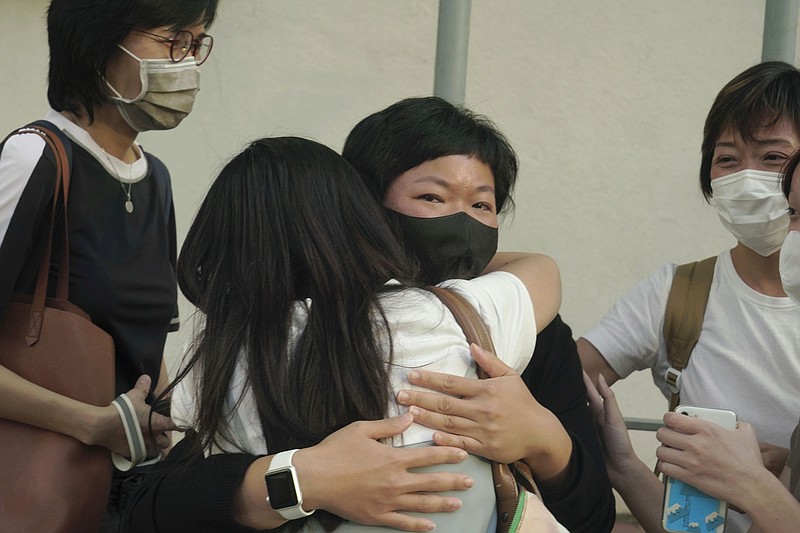HONG KONG -- Hong Kong's police chief warned journalists they could be investigated for reporting "fake news." A newspaper controlled by the Chinese government called for a ban on the city's biggest pro-democracy news outlet. Masked men ransacked the offices of a publication critical of China's Communist Party and smashed its presses.
Hong Kong's reputation as a bastion of press freedom in Asia, home to journalism that is far more aggressive and independent than that found next door in mainland China, has been under sustained pressure for years.
Now, as Beijing moves to stamp out dissent in the city, the news media is under direct assault. Traditional pressure tactics, such as advertising boycotts, have been eclipsed by the sort of bare-knuckles campaign that could leave prominent journalists silenced and their outlets transformed or closed.
Recent targets include the freewheeling pro-democracy newspaper Apple Daily, whose founder was sentenced to 14 months in prison last week, and RTHK, a public broadcaster known for its deep investigations. On Thursday, one of the network's prizewinning producers, Choy Yuk-ling, was found guilty of making false statements to obtain public records for a report that was critical of the police. She was ordered to pay a fine of about $775.
"We seem to have turned some sort of a corner fairly recently," said Keith Richburg, director of the University of Hong Kong's Journalism and Media Studies Center. "Self-censorship is still an issue and not knowing where the red lines are, but now we see what seems to be more of a frontal assault on the media in Hong Kong."
On Thursday, a Hong Kong court found that Choy, a freelance producer, had broken the law when she used a public database of license plate records as part of an investigation into a July 2019 mob attack at a train station in which 45 people were injured. Activists have accused the police of turning a blind eye to the violence.
The journalist, who also goes by the name Bao Choy, helped produce fine-grained documentaries for RTHK that examined who was behind the attacks and why the police were slow to respond. She was arrested in November and charged with making false statements about why she had used the publicly accessible database.
Choy said her case showed how authorities were trying to crack down on the news media and restrict access to information that was once publicly available.
"I realized since my arrest it's not my individual issue," she said in an interview. "It's a bigger issue of press freedom in Hong Kong."
Press freedom groups have denounced Choy's arrest and described it as part of a campaign of harassment. The Committee to Protect Journalists called the government's case an "absurdly disproportionate action that amounts to an assault on press freedom."
